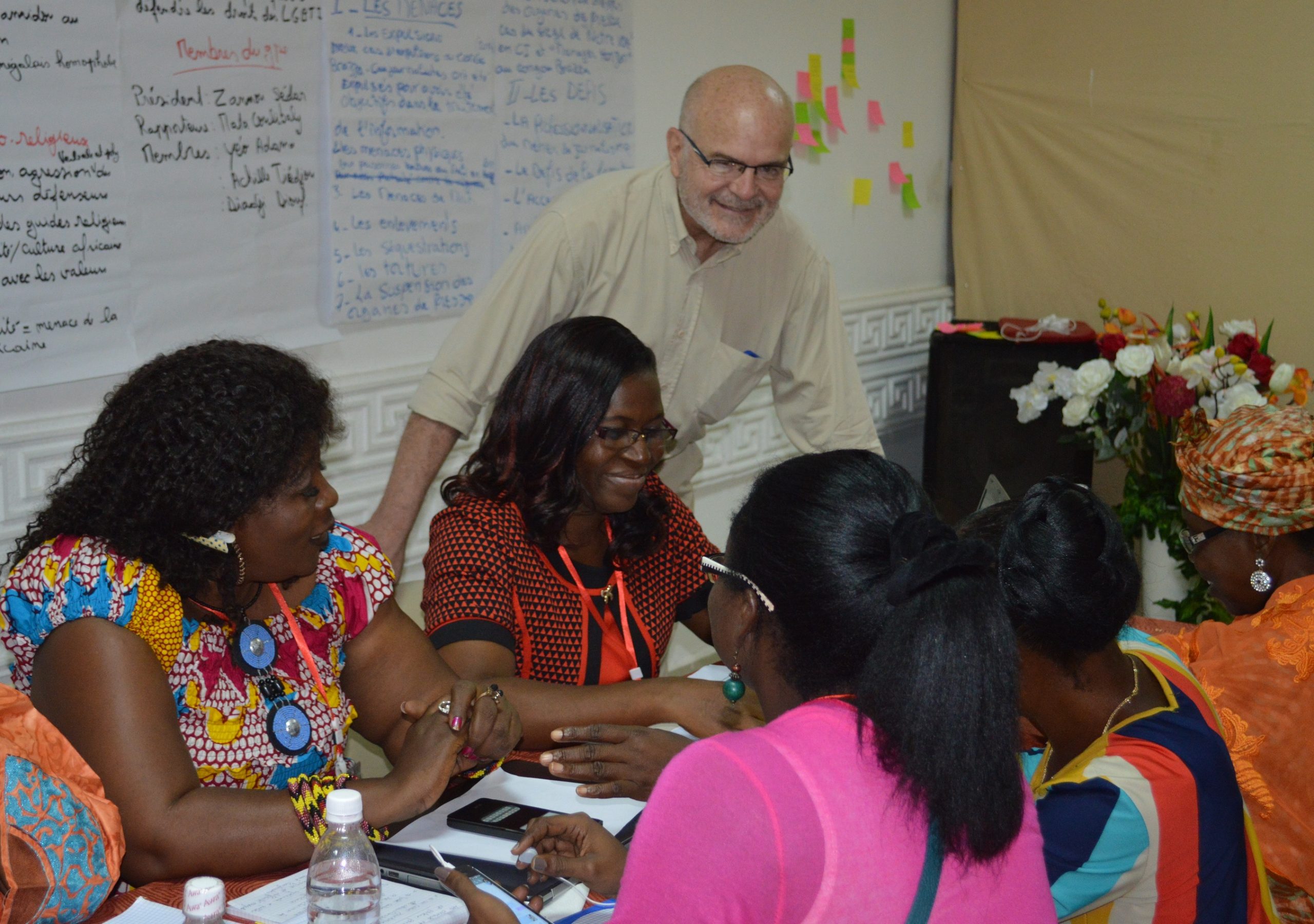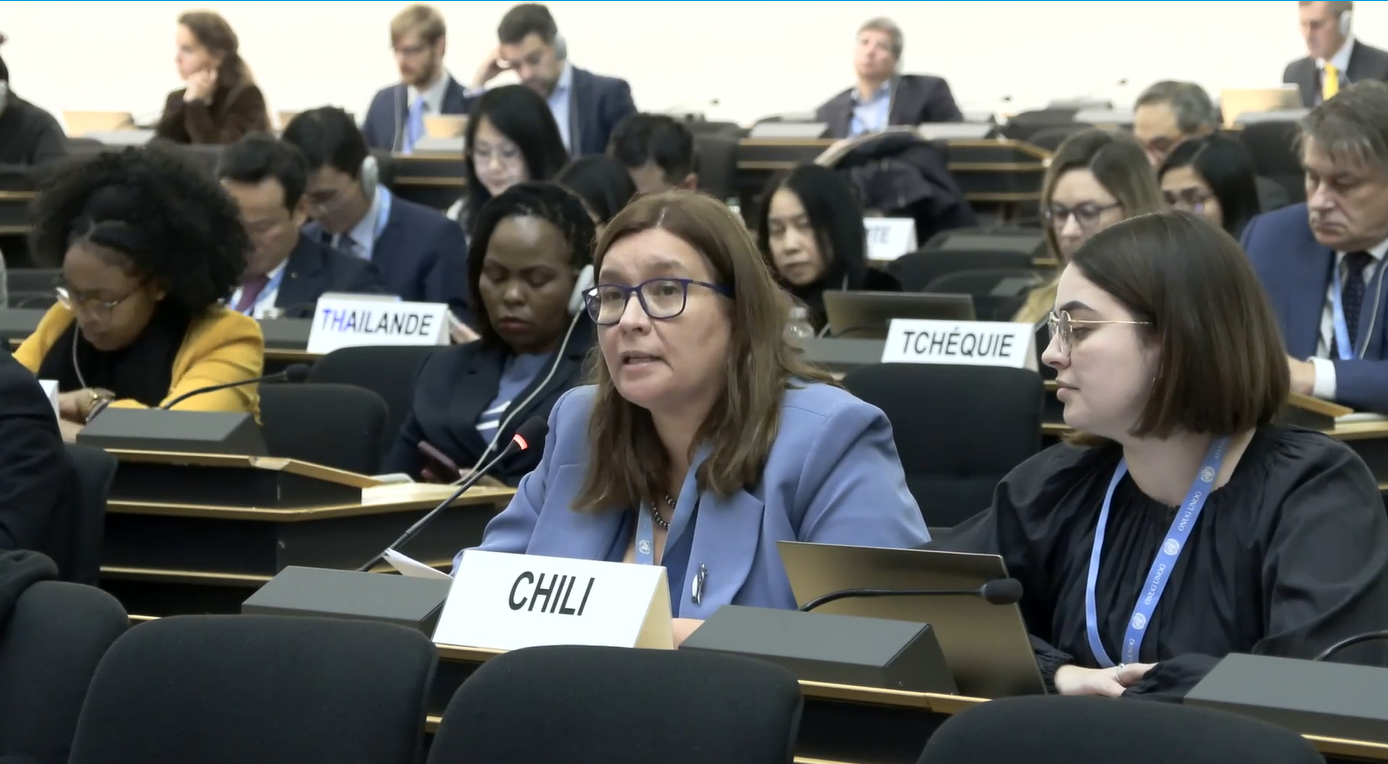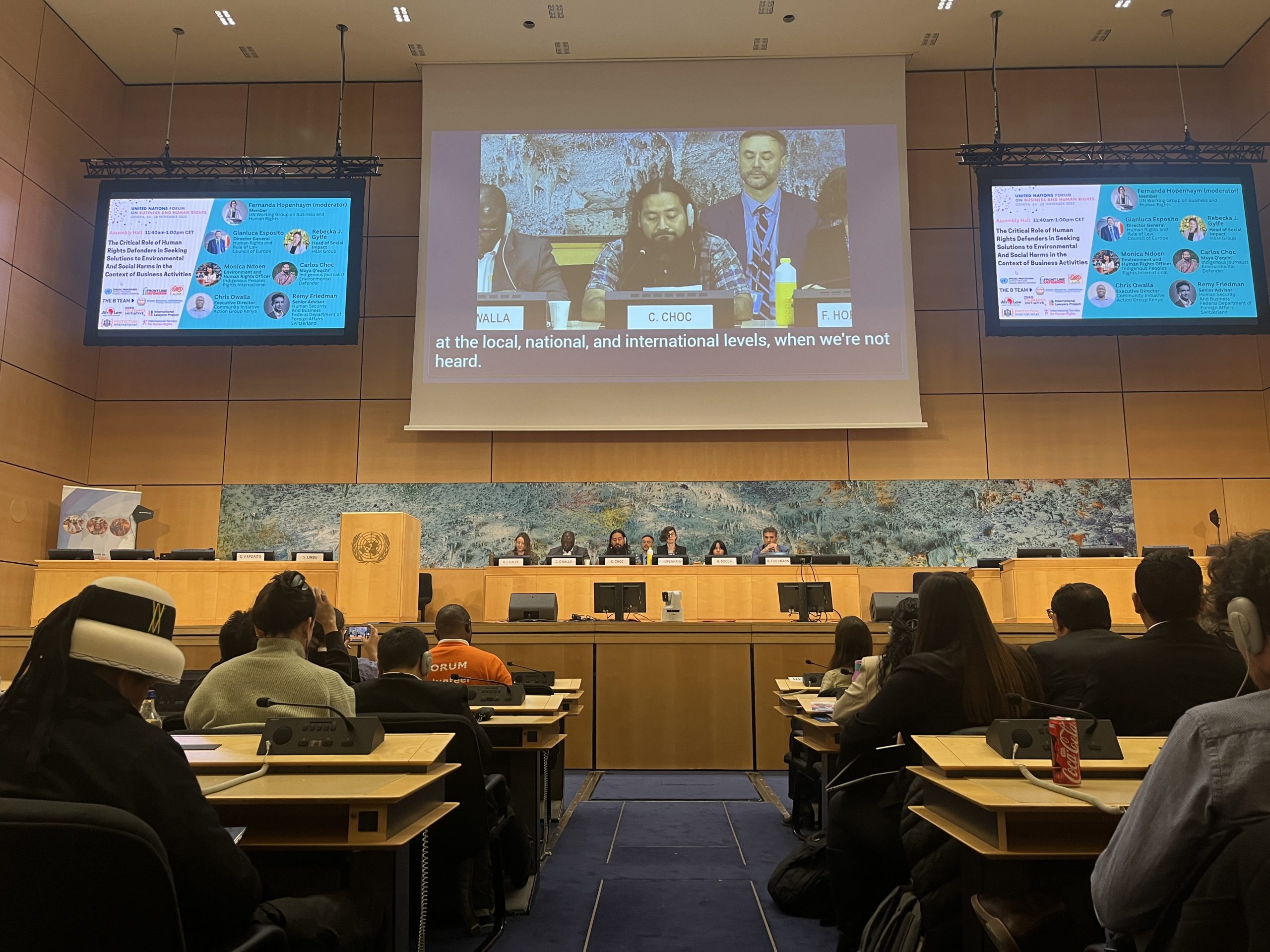In his newly released report to the forthcoming March session of the UN Human Rights Council, Special Rapporteur Michel Forst says that human rights defenders are the ‘lifeblood that our democracies need in order to flourish and survive over time’. He further finds that threats and restrictions against them ‘are not isolated acts but concerted attacks against those who try to embody the ideal of the Universal Declaration of Human Rights in a world free from fear and want.’
The report demonstrates the ongoing relevance and vital importance of the mandate of the Special Rapporteur on Human Rights Defenders, which is due to be renewed at the Council’s March session in Geneva.
Defenders most at risk
According to the Special Rapporteur, human rights defenders working in the field of business and human rights, particularly those working on issues of conservation and on land and environment rights, are among those most at risk. In response to this, the Special Rapporteur has pledged to ‘focus his next report to the General Assembly on the roles and responsibilities of corporations in attacks on defenders’.
‘Businesses and human rights defenders have a shared interest in free and open societies that respect the rule of law,’ said Michael Ineichen, who leads ISHR’s work on human rights defenders and corporate accountability. ‘Enlightened enterprises can and should play a role in supporting and protecting human rights defenders and an enabling environment for their work.
Defenders of the rights of lesbian, gay, bisexual, transgender and intersex persons are also identified as particularly at-risk, with the Special Rapporteur reporting that ‘discrimination and attacks against them are increasing at an alarming rate, partly as a result of the rise of religious fundamentalism around the world’.
‘We welcome the Special Rapporteur’s continued focus on the situation and protection needs of women human rights defenders and those who work on issues of sexual orientation and gender identity,’ said ISHR’s Pooja Patel. ‘We are dedicated to working both with the Special Rapporteur and the recently mandated Independent Expert on sexual orientation and gender identity to ensure that people are free and protected from violence and discrimination, no matter who they are or who they love’.
In the context of mass migration and a rising tide of xenophobia, intolerance and illiberalism, including in developed democracies, the Special Rapporteur has also foreshadowed a focus on the situation of migrants rights defenders.
‘As defenders of the rights of refugees and migrants face worsening legal restrictions, including in Europe, the United States and Australia, we welcome the Special Rapporteur’s increased attention to this group,’ said ISHR’s Sarah Brooks. Ms Brooks is responsible for leading ISHR’s work to protect migrant rights defenders, identified as a priority group for support under ISHR’s recently released Strategic Framework for 2017-2020.
Strengthening protection and promoting implementation
With ‘the number of defenders killed around the world continuously rising’, at least in part due to ‘major institutional weaknesses’, the Special Rapporteur identifies a range of initiatives to strengthen the legal recognition and protection of defenders and to promote the full and effective implementation of the Declaration on Human Rights Defenders at the national level. Without limitation, these initiatives include:
- advising States on the enactment of specific national laws, and the establishment of effective national mechanisms, for the protection of defenders, with the Special Rapporteur endorsing ISHR’s Model National Law for the Recognition and Protection of Human Rights Defenders (para 19);
- exploring with States the desirability of designating human rights defender focal points within the executive and ‘establishing a network of countries that have taken measures towards protecting human rights defenders’ (para 47). This aligns with ISHR’s objective articulated in our 2017-2020 Strategic Framework to collaborate with a cross-regional group of supportive States to establish a Global Network of National Human Rights Defender Focal Points – senior-level State officials responsible for promoting implementation of the Declaration and other relevant standards at the national level and for promoting international cooperation and sharing lessons learned through the Global Network;
- encouraging and advising States on the inclusion of measures to protect human rights defenders in National Action Plans on Business and Human Rights (para 49);
- developing tools to measure implementation of human rights defender-related resolutions and recommendations at the national level and a database to monitor such implementation (paras 83 and 86); and
- preparing a report to the Human Rights Council which includes an assessment of national implementation and working with national actors such as national human rights institutions and ombudsmen to follow up on implementation and, specifically, on communications sent by the mandate to the country concerned (paras 40 and 42).
The Special Rapporteur also welcomes the recent designation of a senior-UN official to combat reprisals against those who cooperate with the UN, joining with ISHR and others in encouraging this official (Assistant Secretary General Andrew Gilmour) to actively investigate, follow up and impact on specific cases rather than ‘limiting themselves simply to recording the facts’.
Discussion of report and renewal of mandate at Human Rights Council
The Special Rapporteur is scheduled to present his report to the Council, and engage in a dialogue with States and civil society actors on the findings and recommendations therein, on 2 March 2017.
According to ISHR’s Human Rights Council Advocacy Director Michael Ineichen, ‘This dialogue presents an important opportunity for States to pledge their support for and cooperation with the mandate at a time when human rights defenders worldwide are under threat. It should also be used as an opportunity for States to frankly identify obstacles to the protection of defenders, and to share good practices and pledge concrete measures towards ensuring a safe and enabling environment for their work.’
Notable good practices over the term of the current mandate (2014-2017) include the adoption by Canada and Finland of guidelines on human rights defenders and by Cote d’Ivoire, Honduras and Mali of laws or draft laws on the protection of defenders.
At the March session of the Council it is also anticipated that Norway will lead the development and negotiation of a resolution to renew the mandate of the Special Rapporteur on Human Rights Defenders.
‘The work of defenders is vital to promoting human rights, upholding the rule of law, and achieving sustainable and inclusive development. The activities of the mandate holder, Michel Forst, are vital in supporting and protecting them in this work. It is imperative that States with a genuine commitment to human rights and sustainable development reflect this commitment through strong and unconditional support for the renewal of the mandate’.
Contact: Michael Ineichen, Director of Human Rights Council Advocacy, ISHR, on [email protected]




